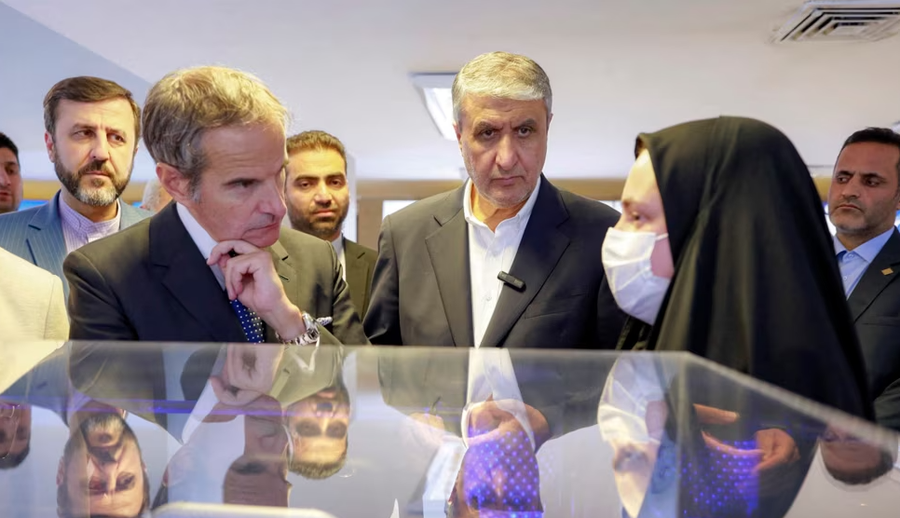
Iran's constitutional watchdog, the Guardian Council, on Thursday approved Parliament's decision to suspend Tehran's cooperation with the International Atomic Energy Agency (IAEA) after the country's nuclear facilities were bombed over the weekend in the 12-day conflict with Israel.
The Supreme National Security Council (SNSC) will finally decide on this law, which was approved the day before by lawmakers with 221 votes in favor and none against.
The SNSC is technically headed by the president, but like all key state institutions, it answers to the supreme leader, Ayatollah Ali Khamenei.
"The plan to force the government to suspend cooperation with the International Atomic Energy Agency was not contrary to Islamic law and the Constitution after review by members of the Guardian Council," the council's spokesman, Hadi Tahan Nazif, said in a post on X.
Israel carried out unprecedented attacks on key Iranian nuclear and military facilities, as well as residential areas, on June 13, in a war that claimed many civilian lives on both sides before ending with a fragile ceasefire brokered by the United States on June 24.
On June 21, the US struck three nuclear facilities in Fordo, Natanz, and Isfahan.
The bill provides that the suspension of cooperation will be lifted only if it is guaranteed that Iranian nuclear facilities and scientists are protected and that Iran's right to enrich uranium domestically is guaranteed.
Among Israel's targets during its attacks on Iran were scientists involved in the Iranian nuclear program.
Iran insists its nuclear program is peaceful and that it does not intend to use it to develop nuclear weapons.
The suspension of cooperation with the IAEA means that Iran will stop inspections, reporting and monitoring activities under the Treaty on the Non-Proliferation of Nuclear Weapons (NPT).
Before the vote, Parliament Speaker Mohammad Baqer Qalibaf criticized the IAEA, saying it failed to "even pretend to condemn the attack on Iran's nuclear facilities" and accused it of "selling out its international credibility."
Tehran has long accused the IAEA of bias and collaboration with Western powers and Israel against Iran.
IAEA Director General Rafael Grossi has for years expressed concern about Iran's lack of cooperation in investigations into old, but undeclared, nuclear facilities.
"The Atomic Energy Organization of Iran will suspend cooperation with the agency until the security of nuclear facilities is guaranteed, and Iran's peaceful nuclear program will move forward at a faster pace," Qalibaf said in comments that were followed by lawmakers chanting "death to America and Israel." (A2 Televizion)











